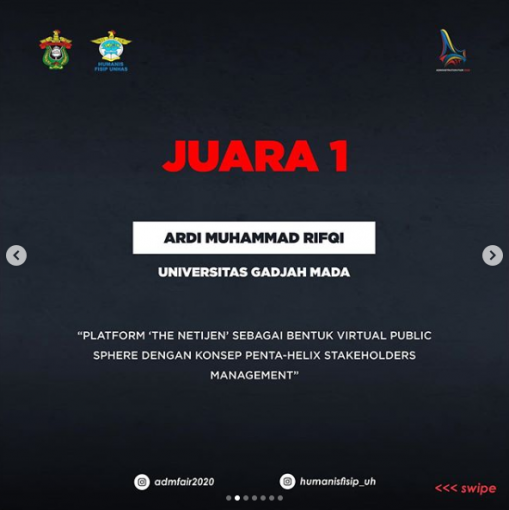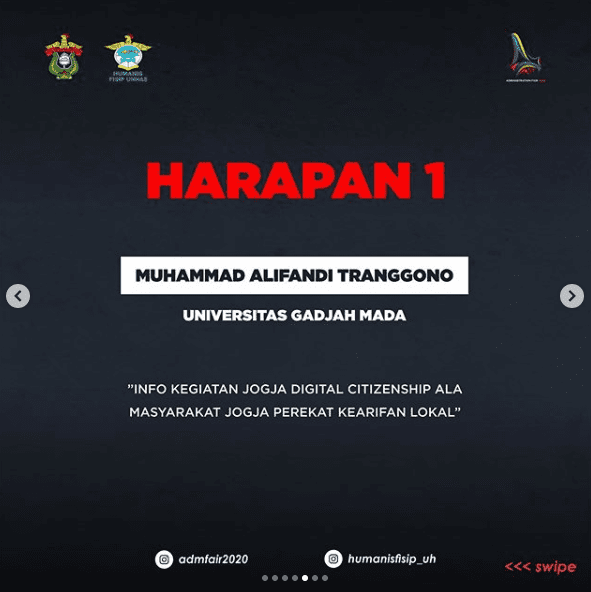
Though the line of events was done virtually, the team expressed their excitement in joining the FGD and other events. “It was very pleasurable because the moderator of the FGD was from a policy study institution and they were like a mentor to us,” said Izul. The same thing was expressed by Brahm. According to him, even though the event is held online, the FGD still expanded their knowledge. “We start to see how the students from other university have a unique perspective on a certain issue,” Brahm elaborated.

The Administration Fair was held under the theme of “Aesthetic Space in Scientific Euphoria” which also have several subthemes. Choosing the theme of youth innovation under the concept of “New Public Service in the Digital Era”, Izul team analyzed “The Netijen” platform with a penta-helix management approach. The five stakeholder explained in the penta-helix management includes the government, academician, chaperon, community, and corporations. Based on their analysis, the platform’s policies are legitimized vertically and horizontally. “The involvement isn’t only on the realm of policy creation but also policy evaluation,” he added.
Izul elaborated further that the platform supported three important points in the New Public Service. The first point is the Citizen Based Service that allows citizen to not only be a client but also the actor of that policy. The second point is democracy which is shown through the involvement of five stakeholders which creates a public space, shared vision, and argumentation dialogue. Other than that, it also encourages a transparency of information so that there is an increase of trust from the public. The third point is collaboration in which the service provider in this era doesn’t only include the government but also private actors and civil society. “The government have to be able to include them and create a collaborative governance management to manage a society that is getting more complex,” Izul said. In the end, the paper which was titled “‘The Netijen’ Platform as a Form of Virtual Public Sphere with the Penta-helix Stakeholders Management Concept” got the first prize in the Administration Fair 2020 paper competition.
Meanwhile, Alifandi’s theme used the same subtheme for their paper titled “Yogyakarta’s Interception Information: Yogya’s Society style of Digital Citizenship that Binds Local Culture”. In their analysis, they analyzed the Yogyakarta’s Interception Information community as a form of volunteerism with a local culture perspective from two sides.First, because ICJ was born from a local community. Second, ICJ was born under the spirit of local culture which is gotong royong. “ICJ also strengthens local culture in the midst of global society which was prone to individualism”, Qoyyum explained.
Qoyumm elaborated further that the NPS method conducted by the government was by giving public spaces (by allowing the existence of ICJ) as a media for the society to help and inform each other. Other than that, ICJ which was social media based proves youth’s role in it, be it on the aspect of initiation or the interaction which was dominated by youth. Finally, on that paper, Alifandi’s team got the fourth place. Both of the win is a proud moment for FISIPOL UGM because it shows how FISIPOL students are always eager to learn and to uphold the name of their faculty and university.
